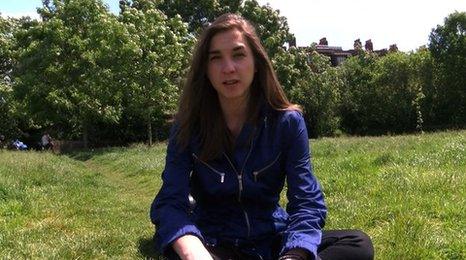Sexual violence in war: Jolie opens summit in London
- Published
Angelina Jolie: "There is no disgrace in being a survivor of sexual violence"
The actress and UN special envoy Angelina Jolie has said a four-day summit on ending sexual violence during war must send a message that there is no disgrace in being a victim.
Ms Jolie was speaking alongside British Foreign Secretary William Hague, who is co-hosting the London summit with her.
The event - the largest ever of its kind, external - is the result of an intense two-year campaign to raise awareness.
Mr Hague said rape was one of the "great mass crimes" of modern times.
He called on the more than 140 nations at the summit to write action against sexual violence into their army training.
A woman recounts her abuse and says the "effect of rape is with me on a daily basis"
The summit aims to:
launch a new international protocol for documenting and investigating sexual violence in conflict, and encourage countries to strengthen domestic laws to enable prosecutions
urge countries to train all soldiers and peacekeepers to prevent sexual violence
increase funding to support survivors of sexual violence
change attitudes towards rape in conflict
The organisers want the event to be the moment the world wakes up and declares that sexual violence is not an inevitable part of war, says BBC World Affairs Correspondent Paul Adams.
'Weapon of war"
Opening the summit, Mr Hague said: "From the abolition of slavery to the adoption of the Arms Trade Treaty, we have shown that the international community can tackle vast global problems in a way that was once considered to be impossible.
"There is power in numbers, and if we unite behind this cause, we can create an unstoppable momentum and consign this vile abuse to history."
Jane: "Rape is a war revenge thing"
Ms Jolie said: "We need to shatter that culture of impunity and make justice the norm, not the exception, for these crimes."
She said she wanted to dedicate the conference to a rape victim she recently interviewed in Bosnia, who felt so humiliated by what had happened to her that she could not even tell her own son.
"She felt that having had no justice for her particular crime, in her particular situation, and having seen the actual man who raped her on the streets free, she really felt abandoned by the world,'' Ms Jolie said. "This day is for her.''
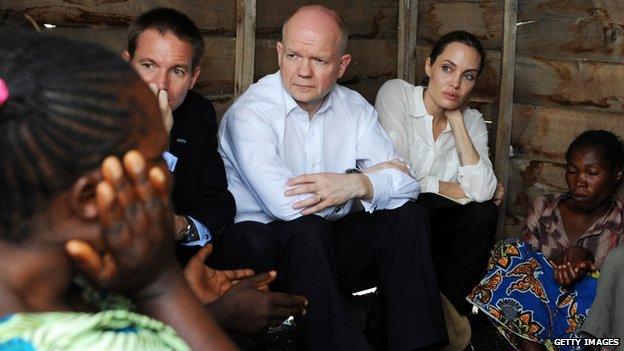
Mr Hague has visited several war zones with Ms Jolie to meet victims of sexual violence in recent years
Angela Atim, one of the speakers at the conference, was kidnapped as a 14-year-old schoolgirl by Lord's Resistance Army (LRA) rebels in Uganda.
She told the BBC: "These people who are accountable for the sexual violence in armed conflict, they have to be brought to justice."
"It's part of our healing because it's really painful to see that they are still walking around, they are still doing the same thing."
Nations taking part in the summit include Bosnia, the Democratic Republic of Congo and Somalia - countries where sexual violence has happened "on a vast scale", Mr Hague told the BBC.
Sexual violence was systematically being used as a weapon of war in the 20th and 21st Centuries, he noted.
Mr Hague cited the estimated 50,000 women who were raped in Bosnia two decades ago, virtually none of whom have received justice.
In the two years since Mr Hague and Ms Jolie launched their campaign, a Declaration of Commitment to End Sexual Violence in Conflict, external has been endorsed by 141 countries.
But the aim now is to take concrete steps, including providing more help to survivors, Mr Hague said.
Karen Allen has been finding out about the sexual violence in the refugee camps in South Sudan
He added that the issue had been a "taboo" for too long, and that it was time to get rid of the "stigma and shame attached to it".
On Thursday, Mr Hague will also host a security meeting focused on Boko Haram, a militant Islamist group in Nigeria. Ministers from Nigeria and neighbouring countries will attend.
Suspected Boko Haram militants abducted at least 20 women in northern Nigeria last week. More than 200 schoolgirls were kidnapped by the same group on 14 April.
- Published10 June 2014
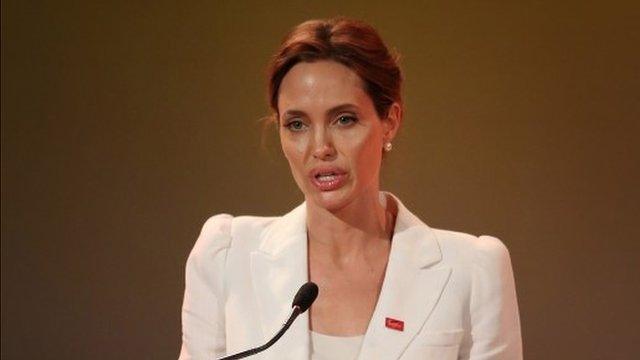
- Published10 June 2014
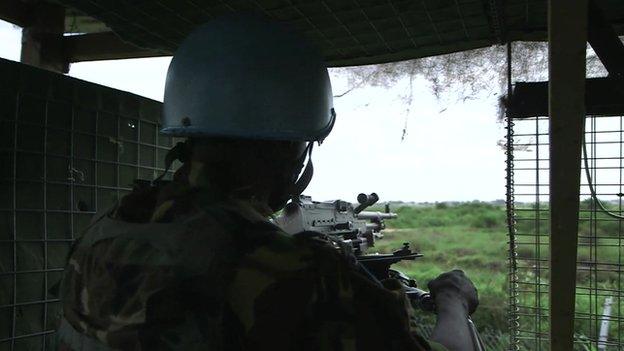
- Published10 June 2014
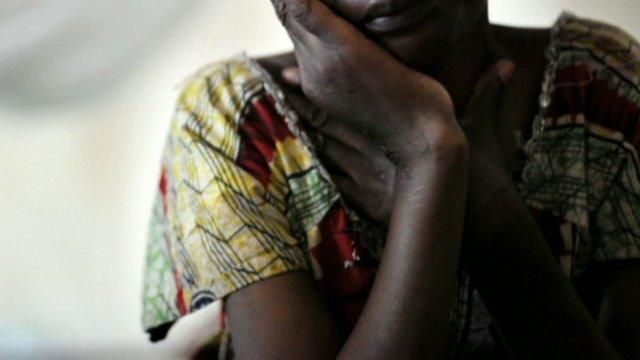
- Published1 April 2014
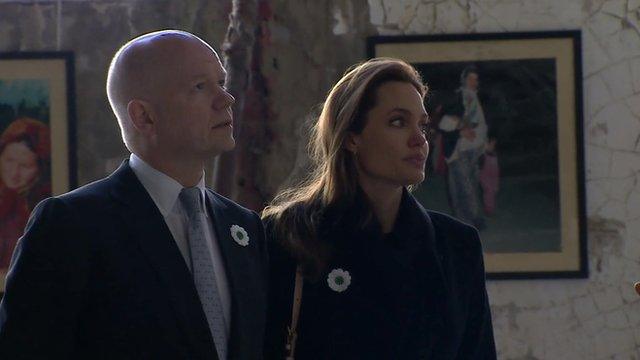
- Published1 April 2014
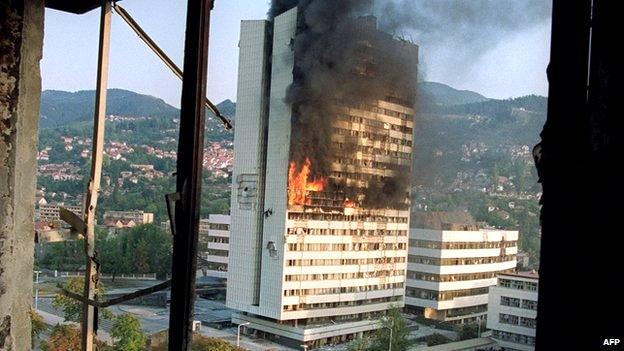
- Published29 May 2012
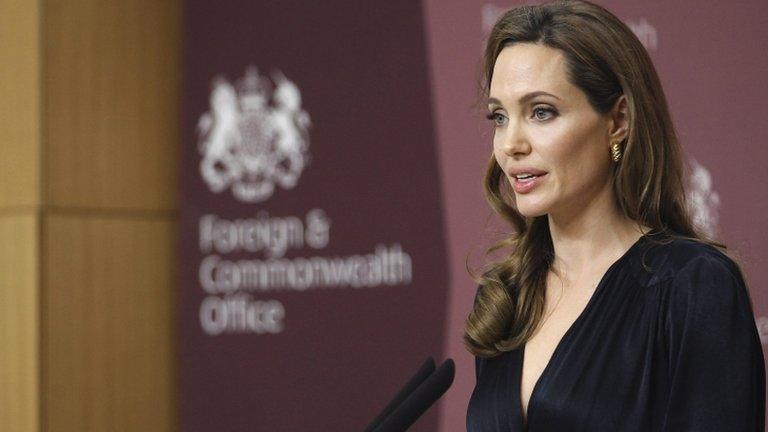
- Published10 June 2014
